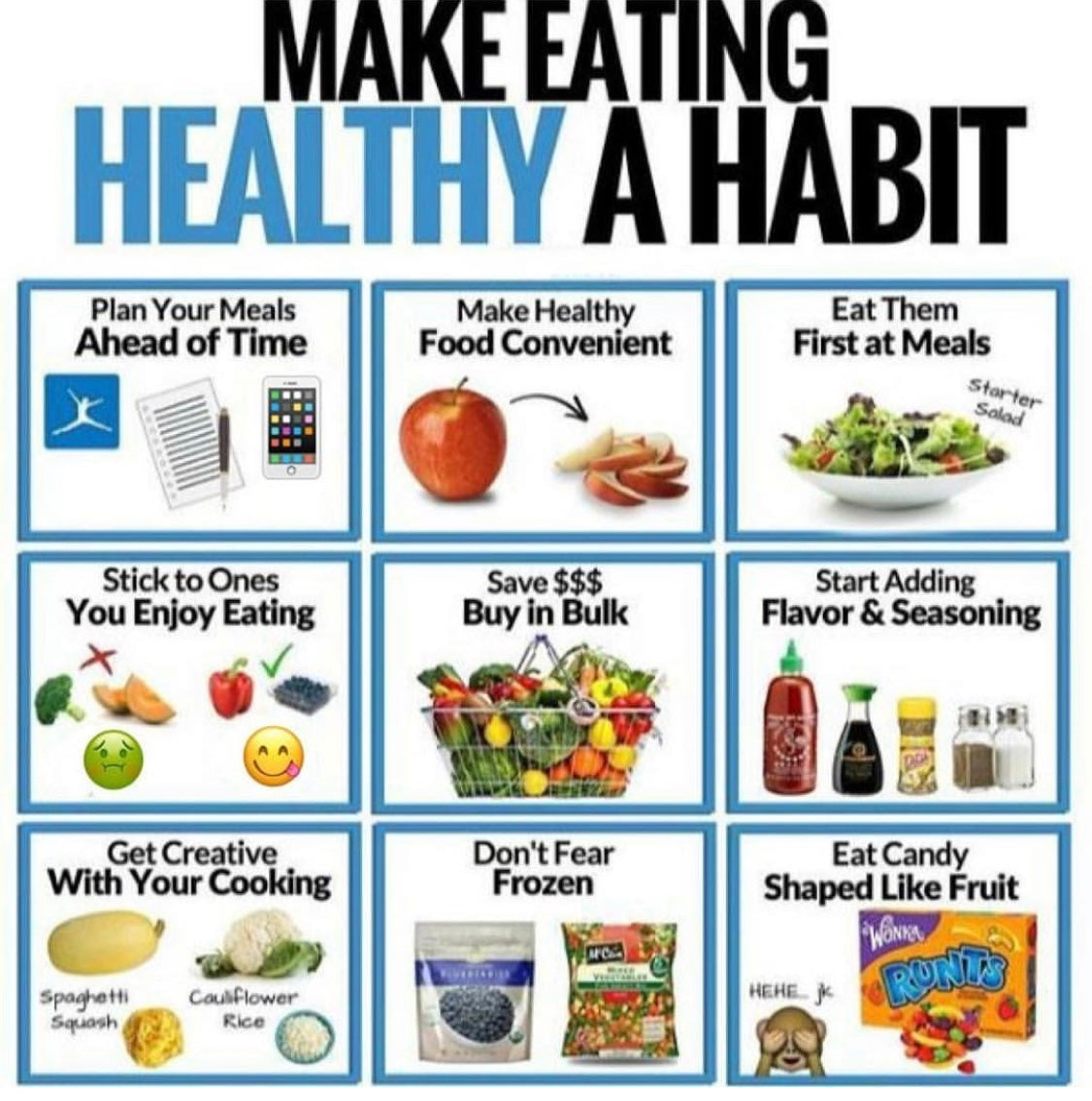Introduction to Healthy Nutrition

Source: askthescientists.com
Nutrition forms the cornerstone of our overall health and wellbeing. What we consume daily directly impacts how our bodies function, feel, and fight against disease. Diet can significantly influence an individual’s health in numerous ways, affecting everything from energy levels to immune function and long-term disease risk. [#1]
The food choices we make aren’t just about satisfying hunger—they’re about providing our bodies with the essential nutrients needed to thrive. Poor nutritional habits can lead to a cascade of health problems, while balanced eating supports optimal bodily functions and helps prevent chronic conditions.
Understanding the Importance of Nutrition
Nutrition plays a critical role throughout our entire lifespan. From supporting growth and development in childhood to maintaining health in adulthood and preventing age-related decline, what we eat matters at every stage of life. According to the World Health Organization, most diseases affecting older people are directly connected to a lack of proper diet. This highlights how crucial good nutrition is for long-term health outcomes. [#2]
The nutrients we consume serve as the raw materials for:
- Cell growth and repair
- Energy production
- Immune system function
- Brain health and cognitive performance
- Hormone regulation
Without adequate nutrition, these fundamental processes become compromised, potentially leading to both immediate and long-term health consequences.
A Holistic View on Health
Healthy nutrition doesn’t exist in isolation—it’s part of a broader approach to wellness. While food choices form the foundation, other lifestyle factors work in concert with nutrition to support overall health. Physical activity, sufficient sleep, stress management, and social connections all interact with our nutritional status.
Taking a comprehensive approach means recognizing that what we eat affects more than just our physical bodies. Nutrition impacts our mental clarity, emotional stability, and even our capacity to handle stress. The gut-brain connection, for instance, demonstrates how dietary choices can influence mood and cognitive function.
By viewing nutrition as one piece of the wellness puzzle, we can make more informed choices that support health across all dimensions. This perspective helps us move beyond restrictive diets or temporary fixes toward sustainable habits that nourish our bodies for the long term.
The Core Components of a Healthy Diet

Source: oakstreethealth.com
Building a nutritious diet requires understanding the fundamental components that fuel our bodies. Like constructing a house, our diet needs a solid foundation of various nutrients working together to support bodily functions. Let’s explore these essential building blocks that form the basis of good nutrition.
Carbohydrates: Fuel for the Body
Carbohydrates serve as the primary energy source for our bodies, particularly for brain function and physical activity. They’re classified into three main types: sugars, fibers, and starches. [#3]
Complex carbohydrates found in whole grains, legumes, and starchy vegetables provide sustained energy release, while simple carbs in fruits and some processed foods offer quicker energy. Choosing the right carbohydrates makes a significant difference in your overall health:
- Whole grains (brown rice, quinoa, oats) contain fiber and nutrients
- Fruits and vegetables provide vitamins, minerals, and natural sugars
- Legumes offer both carbohydrates and protein
Fiber, a type of carbohydrate our bodies can’t digest, plays a crucial role in digestive health. It helps maintain bowel regularity, promotes feelings of fullness that aid weight management, and can help regulate blood sugar levels. Adults should aim for 25-30 grams of fiber daily.
Non-starchy vegetables like leafy greens, bell peppers, and broccoli contain minimal carbohydrates and have little impact on blood sugar, making them excellent choices for everyone, especially those monitoring glucose levels.
Proteins: Building and Repair
Proteins are the workhorses of our cellular structure, responsible for building and repairing tissues, creating enzymes and hormones, and supporting immune function. These molecules, composed of amino acids, are fundamental to nearly every bodily process.
Quality protein sources include:
- Animal proteins: lean meats, poultry, fish, eggs, and dairy
- Plant proteins: legumes, nuts, seeds, and whole grains
- Protein supplements: whey, pea, hemp, or rice protein powders
Lean proteins like skinless chicken breast, turkey, and fish provide more nutrients per serving compared to high-sodium or high-fat protein options. This makes them more efficient choices for meeting your nutritional needs without excess calories or unhealthy components.
For optimal health, distribute protein intake throughout the day rather than consuming it primarily at one meal. This approach supports muscle maintenance and provides a steady supply of amino acids for various bodily functions.
Fats: Essential for Health
Despite their sometimes negative reputation, fats are vital for health. They insulate organs, support cell membrane structure, aid vitamin absorption, and provide concentrated energy. The key lies in choosing the right types of fats.
Healthy fats can be found in vegetable oils, nuts, seeds, and fish. These foods contain unsaturated fats that support heart health when consumed in moderation.
Omega-3 fatty acids, a specific type of polyunsaturated fat found in fatty fish, walnuts, and flaxseeds, offer remarkable health benefits. They help prevent inflammation, which is linked to serious conditions like cancer, rheumatoid arthritis, and heart disease.
While incorporating healthy fats, limit saturated fats (found in red meat and full-fat dairy) and avoid trans fats (in some processed foods) when possible. A balanced approach to fat consumption supports overall health without contributing to cardiovascular risks.
Hydration: The Role of Water
Water might be the most overlooked nutrient, yet it’s absolutely critical for life. Making up about 60% of our body weight, water facilitates countless bodily functions:
- Regulates body temperature
- Lubricates joints
- Delivers nutrients to cells
- Flushes toxins through urination
- Maintains blood volume
Most adults need between 2-3 liters of water daily, though this varies based on activity level, climate, and individual factors. Beyond plain water, hydration can come from herbal teas, fruits, and vegetables with high water content.
Dehydration can impair cognitive function, physical performance, and even mild dehydration can cause headaches, fatigue, and difficulty concentrating. Developing consistent hydration habits supports every aspect of health.
Portion Control and Balance
Even with the highest quality foods, quantity matters. Portion control helps maintain energy balance and prevents overconsumption of even nutritious foods. Visual cues can help:
- A protein serving should be about the size of your palm
- A cupped hand represents an appropriate carbohydrate portion
- Your thumb approximates a serving of healthy fats
- Vegetables can fill the rest of your plate generously
Balance across food groups is equally important. The concept of eating the rainbow encourages consuming fruits and vegetables of various colors to obtain different phytonutrients. Similarly, incorporating diverse protein sources provides different amino acid profiles.
Practical approaches like the plate method (half vegetables, quarter protein, quarter whole grains) offer simple frameworks for balanced meals without requiring complex calculations or strict rules.
Micronutrients: Vitamins and Minerals
While macronutrients (carbs, proteins, fats) provide energy and structural components, micronutrients enable the biochemical reactions that keep us alive and thriving. These include vitamins and minerals needed in smaller amounts but with profound impacts on health.
Vitamin C, found abundantly in citrus fruits, bell peppers, and strawberries, offers powerful antioxidant properties that may help prevent cancer and heart disease. It also supports immune function and collagen production for skin health.
Minerals like potassium play crucial roles in our health. Potassium aids in cell function, reduces blood pressure, and lowers the risk of developing kidney stones. Bananas, potatoes, and leafy greens are excellent sources of this vital mineral.
A varied diet typically provides adequate micronutrients, but certain populations may need supplements. Pregnant women, older adults, those with restricted diets, and people with specific health conditions might benefit from targeted supplementation under healthcare guidance.
Frozen or canned fruits and vegetables without added sugar or sodium are nutritionally comparable to fresh options, making them convenient alternatives when fresh produce isn’t available. This fact helps make nutritious eating more accessible year-round and for various budgets.
By understanding these core components of a healthy diet, you can make informed choices that support your body’s needs. Remember that nutrition isn’t about perfection but about consistent patterns that nourish your body over time.
Implementing Healthy Eating Habits

Source: fitbodyfusion.com
Understanding nutrition principles is valuable, but transforming knowledge into daily practice creates lasting health benefits. Let’s explore practical approaches to incorporate nutritious eating into your everyday life without feeling overwhelmed or deprived.
Learning the MyPlate Method
The MyPlate approach offers a straightforward visual guide for creating balanced meals without complex calculations. This method simplifies nutrition by focusing on proportions rather than precise measurements.
According to the MyPlate method, you should fill half of your plate with fruits and vegetables, one quarter with protein, and one quarter with grains. This simple framework helps maintain nutritional balance at each meal.
To implement this approach effectively:
- Start with vegetables and fruits as the foundation of your meal
- Choose whole grains over refined options whenever possible
- Select lean proteins that align with your dietary preferences
- Add small amounts of healthy fats like olive oil or avocado
The beauty of the MyPlate method lies in its flexibility. You can adapt it to various cuisines, dietary restrictions, and personal preferences while maintaining nutritional adequacy. Whether enjoying a stir-fry, salad, or sandwich, the proportions can guide your choices.
Practical Tips for Everyday Nutrition
Developing sustainable eating habits requires practical strategies that fit into your lifestyle. Small, consistent changes often prove more effective than dramatic overhauls that feel restrictive or complicated.
Hydration forms the cornerstone of good nutrition. Water remains the optimal choice for quenching thirst, while sweetened beverages can introduce excessive sugar into your diet. Consider keeping a reusable water bottle nearby as a visual reminder to drink regularly throughout the day.
Mindful eating represents another powerful practice for improving your relationship with food. This approach involves being fully present during meals, paying attention to hunger and fullness cues, and savoring each bite. Research shows mindful eating can lead to greater enjoyment and satisfaction with meals. [#4]
To practice mindful eating:
- Remove distractions like phones and television during meals
- Take time to appreciate the colors, smells, and textures of your food
- Chew thoroughly and pause between bites
- Check in with your hunger level throughout the meal
- Express gratitude for your food and those who prepared it
Meal planning and preparation can dramatically improve dietary quality while reducing stress around food choices. Even dedicating a few hours weekly to preparing staples like roasted vegetables, cooked grains, or marinated proteins creates a foundation for nutritious meals.
When grocery shopping, focus primarily on the perimeter of the store where fresh foods typically reside. Read food labels carefully to identify hidden sugars, sodium, and unhealthy fats in packaged products. Understanding what you’re consuming empowers better decisions.
Gradual substitutions often prove more sustainable than eliminating foods entirely. Consider these practical swaps:
- Replace sugary drinks with infused water or herbal tea
- Swap refined grains for whole grain alternatives
- Choose fruit for dessert instead of processed sweets
- Use herbs and spices rather than salt for flavoring
- Incorporate plant proteins alongside animal sources
Social connections significantly impact eating habits. Sharing meals with others who value nutrition can reinforce healthy choices, while cooking together turns nutrition into a communal activity rather than a solitary obligation.
Remember that consistency matters more than perfection. The occasional indulgence won’t derail your health, especially within the context of predominantly nutritious choices. This balanced perspective fosters a positive relationship with food rather than triggering guilt or restriction cycles.
By implementing these practical strategies gradually, you’ll develop eating habits that support your health goals while remaining flexible enough for real life. The most effective nutrition plan is one you can maintain long-term, adapting as your needs and circumstances evolve.
Integrating Nutrition with Other Wellness Practices

Source: megadoctornews.com
Nutrition doesn’t exist in isolation. Its impact multiplies when harmonized with other wellness practices. A comprehensive approach to health recognizes that what we eat interacts with how we move, rest, manage stress, and connect with others.
Exercise: Complementing Nutrition
Physical activity and nutrition function as partners in promoting optimal health. Exercise enhances the body’s ability to utilize nutrients while proper nutrition fuels effective workouts and supports recovery.
The relationship works in several key ways:
- Carbohydrates provide energy for physical activity
- Proteins support muscle repair and growth after exercise
- Proper hydration maintains performance and prevents injury
- Micronutrients facilitate metabolic processes during recovery
Different activities may require adjusted nutritional approaches. Endurance athletes might increase carbohydrate intake, while those focused on strength training often prioritize protein consumption. The timing of meals around workouts also matters—consuming carbohydrates and protein within the post-exercise window can optimize recovery.
Regular physical activity improves insulin sensitivity, allowing your body to use nutrients more efficiently. This creates a positive cycle where good nutrition enhances workout quality, and exercise improves how your body processes nutrients.
The Role of Sleep in Nutrition
Sleep quality profoundly affects nutritional choices and how the body processes food. Inadequate sleep disrupts hunger hormones—increasing ghrelin (which stimulates appetite) and decreasing leptin (which signals fullness).
Research consistently shows that sleep deprivation leads to:
- Increased cravings for high-calorie, carbohydrate-rich foods
- Greater susceptibility to emotional eating
- Reduced ability to make thoughtful food choices
- Altered glucose metabolism
Conversely, certain nutritional practices can improve sleep quality. Avoiding large meals, caffeine, and alcohol close to bedtime helps prevent sleep disruption. Some nutrients, like magnesium and tryptophan, may support better sleep when consumed as part of an evening meal or snack.
Creating a consistent sleep schedule reinforces your body’s natural rhythms, which can stabilize appetite and energy levels throughout the day. This stability makes maintaining balanced nutrition substantially easier.
Managing Stress for Better Nutrition
Chronic stress triggers physiological responses that affect both food choices and nutrient processing. During stressful periods, many people gravitate toward comfort foods high in sugar and fat, which temporarily boost mood but may compromise long-term health.
Stress also impacts digestion and nutrient absorption through several mechanisms:
- Redirecting blood flow away from the digestive system
- Altering gut bacteria composition
- Increasing intestinal permeability
- Elevating cortisol levels, which affects metabolism
Developing stress management techniques creates a foundation for healthier eating patterns. Practices like deep breathing, meditation, yoga, or simply spending time in nature can reduce stress hormones and minimize their impact on nutritional choices.
Certain foods may help moderate the stress response. Foods rich in omega-3 fatty acids, magnesium, B vitamins, and antioxidants support the body’s ability to handle stress. Maintaining stable blood sugar through balanced meals also prevents additional physiological stress.
Research has demonstrated the negative health effects of ultra-processed foods, which can exacerbate stress responses in the body. Choosing whole, minimally processed foods not only provides better nutrition but may help regulate stress hormones.
The Importance of Social Connections
The social context of eating significantly influences both what and how we eat. Shared meals often last longer, allowing time to recognize fullness cues, while eating alone may lead to mindless consumption.
Cultural food traditions connect us to our heritage and community. These traditions typically emphasize whole foods prepared with care—a stark contrast to the isolated experience of consuming fast food or eating while distracted by screens.
Social support also plays a crucial role in maintaining healthy eating habits. Having friends, family, or community members who share similar health goals creates accountability and motivation. Cooking and sharing meals together transforms nutrition from a solitary responsibility into a joyful, communal experience.
Consider these ways to enhance the social dimension of nutrition:
- Organize regular potluck meals featuring healthy dishes
- Join a community garden or cooking class
- Create family traditions around preparing nutritious foods
- Share recipes and cooking tips with friends
- Eat meals at a table rather than in front of screens
The emotional nourishment derived from positive social connections complements physical nourishment from food. Both are essential components of holistic wellness that support and enhance each other.
By recognizing these interconnections between nutrition and other wellness practices, you can create synergistic effects that amplify your health outcomes. Small improvements in one area often catalyze positive changes in others, creating momentum toward comprehensive well-being.
Conclusion: Building a Sustainable Nutrition Plan
Creating a Personalized Nutrition Strategy
Developing a nutrition plan that works long-term requires personalization. What nourishes one person optimally may not work for another due to differences in metabolism, health conditions, activity levels, and personal preferences.
Start by assessing your current eating patterns honestly. Track your food intake for a week without judgment to identify areas for improvement. This baseline awareness serves as your starting point for meaningful change.
Consider these elements when crafting your personalized approach:
- Your health goals and any specific medical considerations
- Food preferences and cultural background
- Daily schedule and lifestyle demands
- Budget constraints and food accessibility
- Cooking skills and time availability
Gradual implementation proves more effective than dramatic overhauls. Small, consistent changes accumulate into significant health improvements over time. Perhaps begin by incorporating more whole grains into your diet. Brown rice and whole wheat bread contain substantially more nutrients and fiber than their processed counterparts like white rice and white bread.
Flexibility remains crucial for sustainability. Rigid rules often lead to feelings of deprivation and eventual abandonment of healthy habits. Instead, adopt an 80/20 approach—focus on nutritious choices most of the time while allowing space for occasional indulgences without guilt.
Long-term Benefits of Healthy Nutrition
The advantages of maintaining balanced nutrition extend far beyond immediate energy levels or weight management. A well-planned nutritional approach delivers profound benefits that compound over decades.
Physical health improvements include:
- Reduced risk of chronic diseases including heart disease, type 2 diabetes, and certain cancers
- Stronger immune function and fewer illnesses
- Better digestive health and nutrient absorption
- Healthier skin, hair, and nails
- Maintained muscle mass and bone density with aging
Mental and emotional benefits are equally significant:
- Enhanced cognitive function and memory
- More stable mood and reduced symptoms of anxiety and depression
- Improved focus and productivity
- Better stress management capabilities
- Positive relationship with food and eating
The social dimensions of healthy eating create ripple effects throughout communities. When you prioritize nutritious eating, you often influence those around you—family members adopt healthier habits, friends become curious about your food choices, and children develop lifelong positive associations with nourishing foods.
Financial benefits materialize through reduced healthcare costs and fewer sick days. While some nutritious foods may cost more initially, the long-term savings from preventing diet-related illnesses far outweigh these expenses.
Perhaps most valuable is the increased quality of life that comes from feeling energetic, capable, and well. Good nutrition provides the foundation for pursuing meaningful activities, maintaining independence as you age, and fully engaging with life’s experiences.
Adapting Your Nutrition Plan Over Time
Your nutritional needs evolve throughout life. What works perfectly in your twenties may need adjustment in your forties or sixties. Life transitions—career changes, parenthood, menopause, retirement—all present opportunities to reassess and refine your approach to eating.
Regular check-ins with yourself help identify when adjustments become necessary. Ask questions like: How’s my energy level? Am I satisfied after meals? Do I feel good in my body? These reflections provide valuable feedback about whether your current nutrition plan serves your needs.
Staying informed about nutrition research helps you make evidence-based decisions. However, approach nutrition headlines with healthy skepticism. Look for consensus among reputable sources rather than dramatically changing your diet based on single studies.
Working with healthcare professionals can provide personalized guidance during significant life transitions. Registered dietitians offer specialized knowledge to help navigate changing nutritional requirements due to aging, health conditions, or lifestyle shifts.
Remember that nutrition represents just one aspect of overall wellness. As you refine your eating patterns, continue strengthening the connections between nutrition and other health practices—physical activity, quality sleep, stress management, and meaningful social connections.
The journey toward optimal nutrition isn’t linear. There will be periods of consistent healthy eating and times when other priorities take precedence. Approaching these fluctuations with self-compassion rather than harsh judgment allows you to return to nutritious habits without the burden of guilt.
By viewing nutrition as a lifelong practice rather than a short-term fix, you create the conditions for sustained well-being. The small choices you make daily accumulate into your health story over decades. Each nutritious meal represents an investment in your future self—a gift of energy, vitality, and resilience that pays dividends throughout life.
References
- 1. Nutrition as medicine: The building blocks of health – cooking
https://www.unmc.edu/newsroom/2024/05/03/nutrition-as-medicine-the-building-blocks-of-health-cooking/ - 2. Knowing the Building Blocks of a Healthy Diet
https://nitherapy.com/healthy-eating-part-1-knowing-the-building-blocks-of-a-healthy-diet/ - 3. The building blocks for eating well
https://www.commonwealthcarealliance.org/living-well-at-home/the-building-blocks-for-eating-well/ - 4. Building Block of Wellness #2: Nutrition – Mindful Café
https://mindfulcafe.life/building-block-of-wellness-2-nutrition/